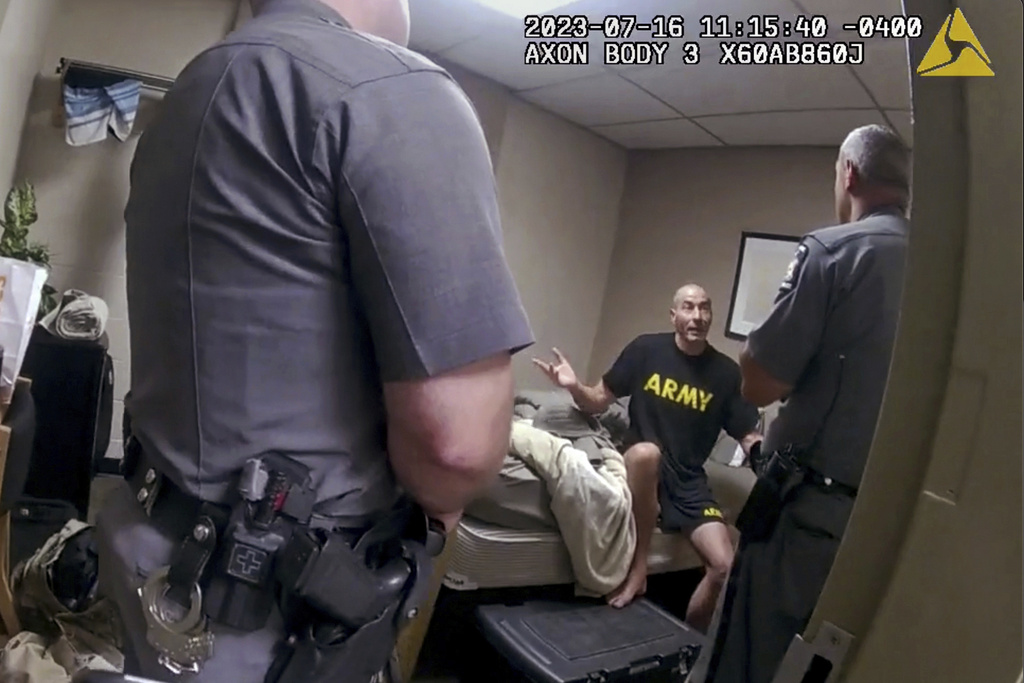Lawyers for 100 survivors and relatives of victims of the deadliest shooting in Maine history have begun the formal process of suing the U.S. Army for what they say was a failure to act to stop the reservist responsible for the crime, attorneys announced Tuesday.
The individual notices of claim say the Army failed to act despite being aware of the reservist’s mental health decline that led to his hospitalization and left him paranoid, delusional and expressing homicidal ideations — including producing a “hit list” of those he wanted to attack.
“It is difficult to conceive of a case in which Army personnel could have more warning signs and opportunities to intervene to prevent a service member from committing a mass shooting than what happened in the case of Army Reservist Robert Card,” the lawyers wrote.
The notices of claim by four law firms, one of which worked with victims of the 2012 Sandy Hook, Connecticut, mass shooting, are a required step in suing the federal government. The Army will have six months to determine whether to respond, after which lawyers are poised to file a lawsuit. The Army said in a statement Tuesday that it does not comment on litigation.
Eighteen people were killed when the 40-year-old Card opened fire at two locations he’d frequented — a bowling alley and a cornhole league hosted by a bar and grill — on Oct. 25, 2023. An additional 13 people were injured. Card was found dead by suicide two days later.
Lawyers for the Lewiston victims gathered with dozens of survivors and their family members and friends on Tuesday to announce the filing. At a news conference held about 1.5 miles (2.4 kilometers) from the bar and grill, Elizabeth Seal said through a sign language interpreter that the legal action is critical for the victim’s healing process. Seal’s husband, Joshua Seal, was killed in the shootings.
“We need to keep the people who acted in a neglectful way accountable, because they may have been responsible for the loss of our 18 loved ones,” Seal said through the interpreter. “And for those of us who are victims and survivors, the emotional and physical trauma will stay with us forever. Once justice is served, I feel maybe we can start that process of healing.”
An independent commission appointed by Maine’s governor concluded that there were ample opportunities to intervene by both civilian law enforcement and the Army. For now, lawyers for victims, as well as relatives and friends who suffered loss, are focusing on the Army, not on a private hospital that treated Card or on civilian law enforcement.
The Department of Defense, U.S. Army and Army Keller Hospital “broke its promises, failed to act reasonably, violated its own polices and procedures and disregarded directives and orders,” the claim said.
In September 2023, when Card threatened to “shoot up” an armory and his friend warned of “a mass shooting,” the Army did not provide critical background about two doctors recommending that Card not have access to weapons when it requested that local law enforcement officers check on his well-being, the claims said. Card’s commanding officer even downplayed the threat by undercutting the credibility of the soldier who issued the warning and by declining to share all information at his disposal, the claims said.
Cynthia Young, whose husband, William, and 14-year-old son, Aaron, were killed at the bowling alley, said the pain and trauma never go away.
“As terrible as the shooting was, it’s even more tragic that there were many opportunities to prevent this and they were not taken,” she said. “There needs to be accountability for those actions not taken that led up to the 18 souls being lost and also the loss of feeling safe and secure from the survivors of this tragic event.”
The filings said there may have been a time when mass shootings were so rare that they couldn’t be predicted, but “that has not been true in America for decades.”
“Mass shootings, like what happened in Lewiston, are an epidemic in America. Consequently, those in positions of responsibility and authority are required to appreciate the warning signs and behaviors that telegraph the risk of mass violence, take them seriously, and act to prevent their occurrence,” the claims said.
(AP)











